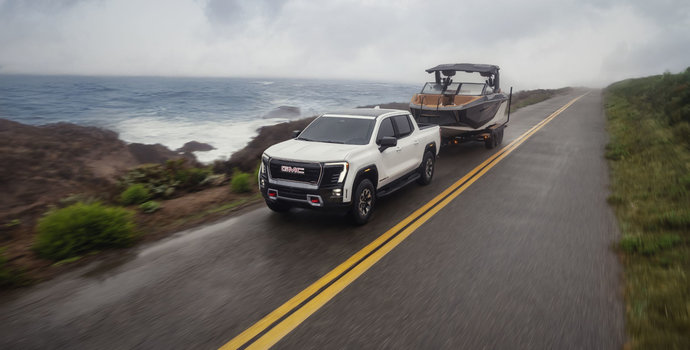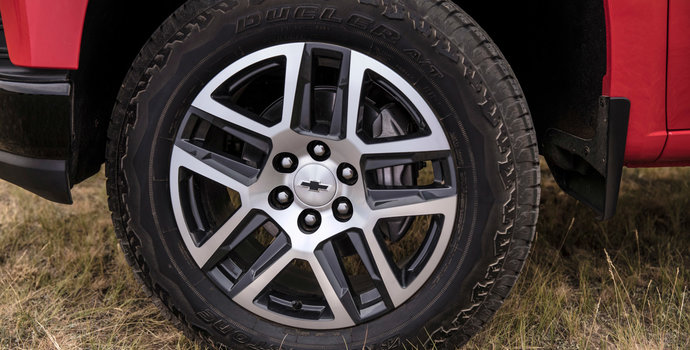What Is THC?
THC stands for tetrahydrocannabinol, the chemical component in cannabis that causes your brain to feel more psychoactive in a manner that makes you feel high or euphoric. The mind-altering effects of THC have been found to cause impaired driving after consuming marijuana.
The Difference Between THC & CBD
It is important to note that not all marijuana contains THC. Most medical marijuana, for example, contains CBD (cannabidiol) instead of THC. CBD is a different chemical component that does not get you high or impair your motor or mental functions. It is used in medical marijuana because it is able to treat several medical conditions or symptoms, especially those related to pain and mental illness, without affecting your mental faculties.
Canadians who are 19 years of age and older can legally buy and use cannabis containing CBD or THC without requiring a prescription, including products that are meant purely for therapeutic rather than recreational purposes. That means you will be able to buy products that contain little to no THC in your system, so they will not get you high and will not appear in your system when you are tested by police.
Be careful, though — while medical and therapeutic marijuana may have CBD as the primary chemical component, some will still have traces of THC because it can treat other medical conditions and symptoms that CBD cannot. Make sure you research what type of cannabis or cannabis products you buy or are prescribed to avoid driving a vehicle while impaired.
Why Are Police Only Testing for THC?
The reason why the legal system is only set up to test and punish drivers who have THC in their system, and not other cannabis chemicals, is because THC is the only chemical component that affects a person’s mental faculties in a way that can lead to them driving in an unsafe manner.
The problems with THC are very similar to those of alcohol when you consume enough of it:
- Impairs your judgment
- Decreases your motor coordination
- Decreases your reaction time
How THC Stays in Your System
The role played by marijuana in crashes is often unclear because it can be detected in body fluids for days or even weeks after intoxication and because people frequently combine it with alcohol.
Did You Know?
Average recreational marijuana tends to have around 20% THC, but it can be over 30% or as low as 1%. Make sure you know the THC levels in any cannabis you consume to know how it will affect the levels of THC in your system before you drive.
How Police Test for THC in Your System
The science and technology around reliably testing for the levels of impairment due to THC being in your system are much newer and less refined than alcohol. Part of the reason is for how THC stays and is found in your system compared to alcohol (more on that below), but also because drinking and driving have been a high-profile issue for a lot longer than consuming cannabis and driving has.
Here is how you will be tested by the police.
Drug Testing
When a police officer pulls you over, they must have reason to believe that you are driving while impaired by cannabis or other drugs. This includes if they saw you driving erratically or dangerously, or how you speak and interact with the police officer. On location, the police officer can ask you to complete a Standardized Field Sobriety Test (SFST) or provide an oral fluid sample (police are authorized to use oral fluid testing devices as part of the Bill C-46 legislation). If the driver fails these tests, a police officer can demand a Drug Recognition Evaluation (DRE) or blood sample for testing.
This test is more thorough and will determine if you have THC in your system at a high enough level to impair your driving ability. If you fail this test, you may be arrested and/or punished, depending on the level of THC present in your system and the degree of impairment and unsafe driving you were exhibiting. See the section on punishments below for more information.
Did You Know?
How you consume cannabis affects how it appears in your system. When you smoke or vape cannabis, you will feel it faster, but the effects of THC will peak and disappear between 30 minutes to 4 hours. If you consume edibles, you may not feel the effects as quickly, but the effects will usually last between 4 to 6 hours. Remember when you eat edibles that the THC will remain in your system for longer when you drive a vehicle later on.
Laws for Driving with Cannabis In Your System
Ontario has a zero-tolerance policy for driving a vehicle while under the influence of cannabis. If a police officer suspects you to be under the influence, you will be detained, screened and tested to determine if you have any THC in your system.
Violation of Ontario’s zero tolerance law will result in license suspensions and financial penalties. Repeat offenders will face longer suspensions and additional consequences, like mandatory education and treatment programs.
Any level of THC in your urine will result in some kind of punishment. However depending on your impairment, it may not end with criminal charges or a criminal record. Here are the prohibited drug concentration levels for THC:
- at or over 2 ng (nanograms) but under 5 ng of THC per ml (millilitre) of blood for the straight summary conviction offence - with a maximum penalty of $1,000 fine.
- at or over 5 ng of THC per ml of blood for the drug-alone hybrid offence
- at or over 2.5 ng of THC per ml of blood combined with 50 mg of alcohol per 100 ml of blood for the drugs-with-alcohol hybrid offence
Here are the penalties for each offence:
- a summary conviction offence is a maximum fine of $1,000.
- both hybrid offences are the same as for alcohol-impaired driving - mandatory minimum penalties of $1,000 fine for a first offence, 30 days imprisonment for a second offence and 120 days imprisonment for a third offence.
Hybrid THC & Alcohol Impairment
It is considered more dangerous to be driving while under the influence of both alcohol and THC. Ontario therefore has a hybrid offence with stiffer penalties for people who have a BAC of .05 combined with a THC level over 2.5 ngs or only a THC level at 5 ng or more.
Zero Tolerance for Young, Novice & Commercial Drivers
If you are 21 years old or younger, if you have a learner’s driver’s license in Ontario (G1, G2, M1, M2), or if you are driving a commercial vehicle or road-building equipment, there will be an even lower tolerance for having any THC in your system.
Exceptions for Medical Cannabis Users
If you have a legal medical prescription for cannabis, the Ontario government will allow greater leeway for driving with THC in your system (unless you are a young, novice or commercial driver).
If a police officer is satisfied that you are legally authorized to use cannabis for medical purposes, you will not be subject to Ontario’s zero tolerance drug requirements for young, novice and commercial drivers.
However, you can still face criminal charges if the police officer sees that it is clearly affecting your ability to drive safely. It is the responsibility of the driver who has a medical prescription to make sure they only operate a vehicle in a safe, unimpaired manner.
Did You Know?
According to a 2014 study of all car accidents in Canada that resulted in a fatal injury for the driver, 26.9% of drivers tested positive for having only drugs in their system, and 15.5% had both drugs and alcohol. Both represent a larger group than the 13% drivers who tested positive for having only alcohol in their system.
Legal Penalties for Impaired Driving
If the police determine you were driving while impaired, your legal punishment will depend on factors based on your age, license, prior convictions for impaired driving and the level of THC and/or alcohol in your system. Here are the penalties you can expect:
- immediate license suspensions
- fines and reinstatement fees
- enrollment into education or treatment programs
- vehicle impoundment
- harsher penalties upon conviction
Warn range penalties for all drivers
- with a Blood Alcohol Concentration (BAC) between 0.05-0.079
- who fail the Standard Field Sobriety Test (alcohol and/or drugs)
First time:
- 3-day immediate license suspension
- $250 penalty
Second time:
- 7-day immediate license suspension
- education or treatment program
- $350 penalty
Third time:
- 30-day immediate license suspension
- education or treatment program
- Ignition Interlock condition for six months
- $450 penalty
You’ll also have to pay a license reinstatement fee every time your license is suspended.
Impairment penalties for all drivers
- with Blood Alcohol Concentration (BAC) of 0.08 or more
- who fail or refuse to comply with a demand for alcohol or drug testing
- who perform poorly during a Drug Recognition Expert evaluation (drugs or a combination of drugs and alcohol)
First time:
- immediate roadside 90-day suspension
- 7-day vehicle impoundment
- $550 penalty
Second time:
- immediate roadside 90-day suspension
- 7-day vehicle impoundment
- education and treatment program
- $550 penalty
Third time:
- immediate roadside 90-day suspension
- 7-day vehicle impoundment
- education and treatment program
- Ignition Interlock condition for six months
- $550 penalty
You’ll also have to pay a license reinstatement fee every time your license is suspended.
Additional penalties for criminal impaired driving charges
No matter what age or license you have, if you are convicted criminally of impaired driving in court, you can face additional fines and jail time, plus:
First conviction:
- license suspension of at least 1 year
- you must attend a mandatory education or treatment program
- requirement to use an ignition interlock device for at least 1 year
Second conviction within 10 years:
- license suspension of at least 3 years
- you must attend a mandatory education or treatment program
- requirement to use an ignition interlock device for at least 3 years
- you will need to undergo a mandatory medical evaluation to determine whether you meet the requirements for driving in Ontario
Third conviction within 10 years:
- lifetime license suspension, which may be reduced after 10 years if you meet certain criteria
- you must attend a mandatory education or treatment program
- requirement to use an ignition interlock device for at least 6 years
- you will need to undergo a mandatory medical evaluation to determine whether you meet the requirements for driving in Ontario
Fourth conviction within 10 years:
- lifetime license suspension, with no possibility of reduction
In some cases, you may be able to reduce the length of your suspension by installing an ignition interlock device.
Penalties for young and novice drivers
If you are 21 and under or have a G1, G2, M1 or M2 license you cannot have any drugs or alcohol in your system. You will face these penalties, plus you can face additional penalties for impairment just like any other fully licensed-driver.
First time:
- 3-day immediate roadside license suspension
- $60-$1000 fine (if convicted)
- $250 penalty
Second time:
- 7-day immediate roadside license suspension
- $60-$1000 fine (if convicted)
- education or treatment program
- $350 penalty
Third time:
- 30-day immediate roadside license suspension
- $60-$1000 fine (if convicted)
- education or treatment program
- Ignition Interlock condition for six months
- $450 penalty
Once convicted, your license can be suspended for an additional 30 or 90 days, or cancelled, depending on your age and the class of driver’s license you have.
You’ll also have to pay a license reinstatement fee every time your license is suspended.
Penalties for commercial vehicle drivers
If you are driving a commercial vehicle such as a truck or bus, you cannot have any drugs or alcohol in your system. You will face these penalties, plus you can face additional penalties for impairment just like any other fully-licensed driver.
First time:
- 3-day immediate roadside license suspension
- $250 penalty
Second time:
- 3-day immediate roadside license suspension
- education or treatment program
- $350 penalty
Third time:
- 3-day immediate roadside license suspension
- education or treatment program
- Ignition Interlock condition for six months
- $450 penalty
You’ll also have to pay a license reinstatement fee every time your license is suspended.
Avoid All Penalties
Of course, you can avoid all penalties by not driving impaired at all. If you are going to use alcohol and/or drugs, you should plan ahead or find an alternative way home:
- have a designated driver
- use public transit
- call a friend or family member for a ride
- call a taxi or rideshare
- stay overnight
You can read more about the details involving convictions in court for driving while impaired by cannabis, alcohol, and/or other controlled drugs on the Canadian Department of Justice’s website.
You might also be interested in these guides:
Guide to Driving in Ontario
Guide to Distracted Driving in Ontario
Guide to the Ontario G2 Road Test
How to Renew, Replace or Reinstate Your Driver’s License







